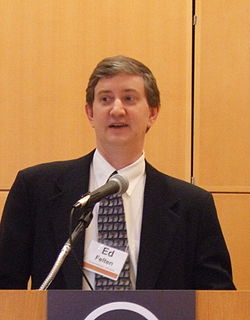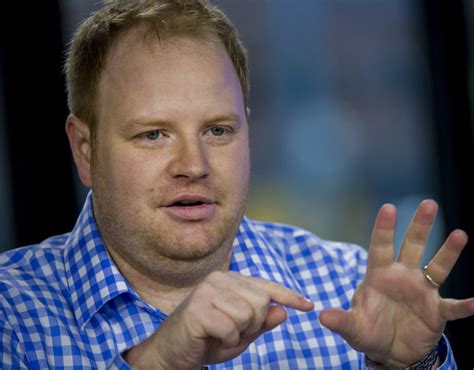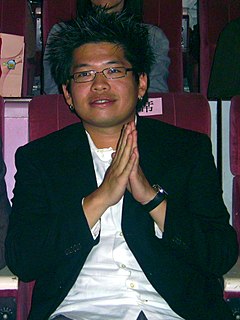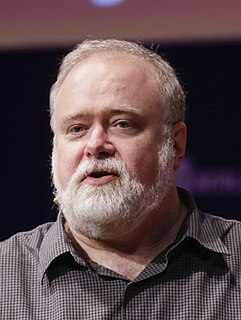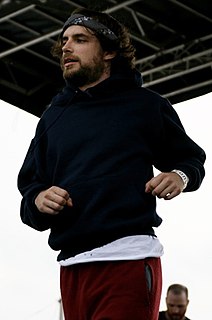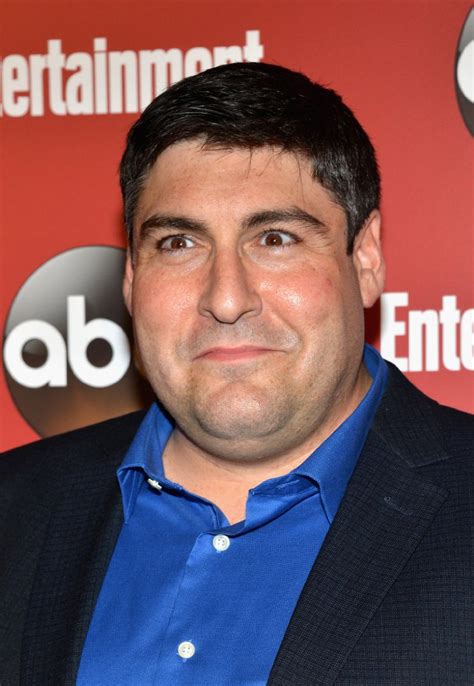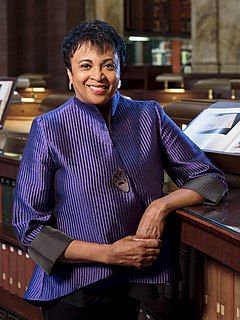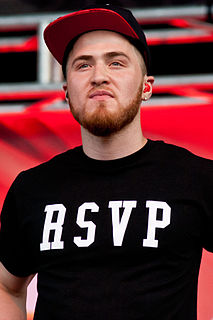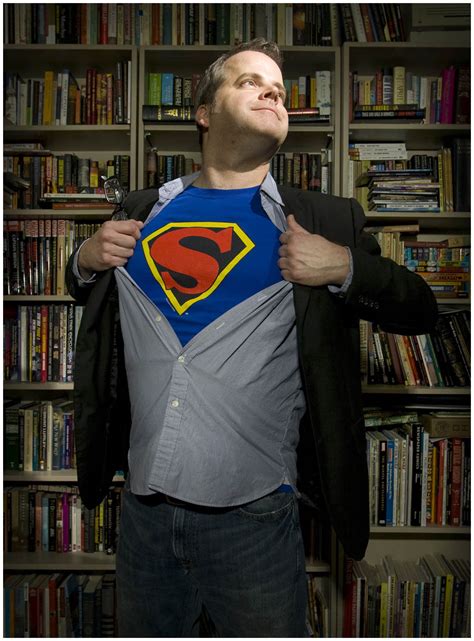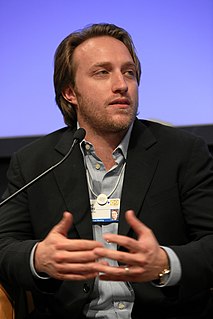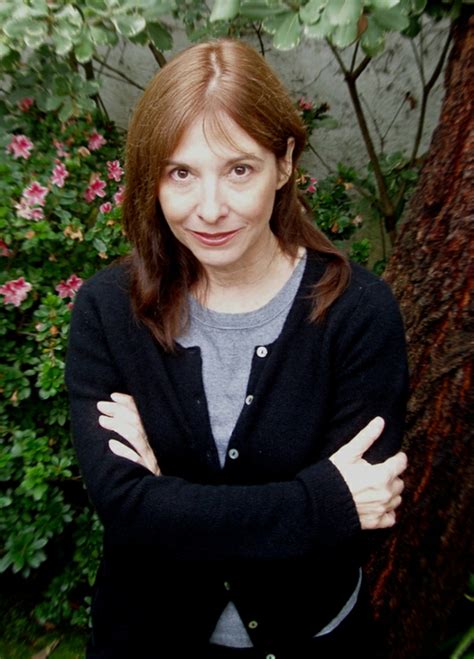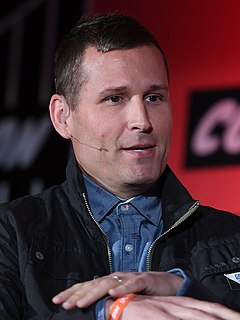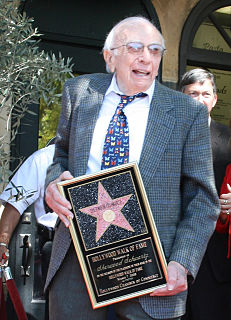Top 1200 Copyright Law Quotes & Sayings
Explore popular Copyright Law quotes.
Last updated on November 5, 2024.
National law has no place in cyberlaw. Where is cyberspace? If you don't like banking laws in the United States, set up your machine on the Grand Cayman Islands. Don't like the copyright laws in the United States? Set up your machine in China. Cyberlaw is global law, which is not going to be easy to handle, since we seemingly cannot even agree on world trade of automobile parts.
What I really think is that our current model of copyright is fundamentally broken. We badly need to replace it with a different system for remunerating creators, which gets it the hell out of the face of the public (who were never aware of it to begin with in the pre-internet dead tree era). Unfortunately, the current copyright model is enshrined in international trade treaty law, making it almost impossible to work around.
I think intellectual property is more like land, and copyright violation is more like trespass. Even though you don't take anything away from the landowner when you trespass, most people understand and respect the laws that make it illegal. The real crime in copyright violation is not the making of the copies, it's the expropriation of the creator's right to control the creation.
The law is equal before all of us; but we are not all equal before the law. Virtually there is one law for the rich and another for the poor, one law for the cunning and another for the simple, one law for the forceful and another for the feeble, one law for the ignorant and another for the learned, one law for the brave and another for the timid, and within family limits one law for the parent and no law at all for the child.
Either we, as a society, decide that copyright is the greater value to society, and take active steps to give up private communications as a concept. Either that, or we decide that the ability to communicate in private, without constant monitoring by authorities, has the greater value - in which case copyright will have to give way.
Under the 1998 Digital Millennium Copyright Act, Tumblr, YouTube, Reddit, WordPress, and Facebook aren't responsible for the copyright infringement of each of their millions of users, so long as they take down specific posts, videos, or images when notified by copyright holders. But copyright holders thought that wasn't good enough.
Copyright law has got to give up its obsession with 'the copy.' The law should not regulate 'copies' or 'modern reproductions' on their own. It should instead regulate uses--like public distributions of copies of copyrighted work--that connect directly to the economic incentive copyright law was intended to foster.
The primary objective of copyright is not to reward the labor of authors, but ‘[t]o promote the Progress of Science and useful Arts.' To this end, copyright assures authors the right to their original expression, but encourages others to build freely upon the ideas and information conveyed by a work. This result is neither unfair nor unfortunate. It is the means by which copyright advances the progress of science and art.
If I take that person and play them as a record I'm becoming not only a conductor and composer of collage, but at the same time I'm looking at a whole layer of what goes into copyright law, who owns those memories, who owns the way that that sound gets remixed and transformed and above all how much fun it is to actually just mess with other people's stuff.
I named my software 'EMAIL,' (a term never used before in the English language), and I even received the first U.S. Copyright for that software, officially recognizing me as The Inventor of Email, at a time when Copyright was the only way to recognize software inventions, since the U.S. Supreme Court was not recognizing software patents.
If we're talking about someone creating something new, those rights are fairly well defined (in the United States, at least) under existing copyright law. But then there's often discussion about the rights of people who produce works under work-for-hire arrangements, which can be far more subtle and nuanced.
I think the reality is that copyright law has for a very long time been a tiny little part of American jurisprudence, far removed from traditional First Amendment jurisprudence, and that made sense before the Internet. Now there is an unavoidable link between First Amendment interests and the scope of copyright law. The legal system is recognizing for the first time the extraordinary expanse of copyright regulation and its regulation of ordinary free-speech activities.
Providing free access to research papers on websites like Sci-Hub breaks so-called copyright law that was made to taboo free distribution of information on the Internet. That includes music, movies, documentaries, books, and research articles. Not everyone agrees that copyright law should exist in the first place.
Judges decide upon copyright law. They decide upon trademark law. They decide upon scientific issues. They decide upon very complex technical issues on a daily basis. So you must have confidence in the Supreme Court, that they will apply their mind and they will come out with a decision consistent with the Constitution.
Anyone who knows anything should know you cannot take a master track of a recording and write another song over the top of it. You just can't do that. You can call it a tribute or whatever you want to call it, but it's against the law. That's a problem with some of the younger generation, they don't understand the concept of intellectual property and copyright.
The crystal ball has a question mark in its center. There are some fundamental choices to be made. We will either choose to continue to wage a hopeless war to preserve the existing architecture for copyright by upping the stakes and using better weapons to make sure that people respect it. If we do this, public support for copyright will continue to weaken, pushing creativity underground and producing a generation that is alienated from the copyright concept.
I own all the characters I created, thanks to the Writers Guild, so nobody can do anything without me. The way it works is: If the copyright owners instigate a project, like the movie, then I get a fee as creator. If I instigate a project, like the musical, I pay a percentage to the copyright owners.

